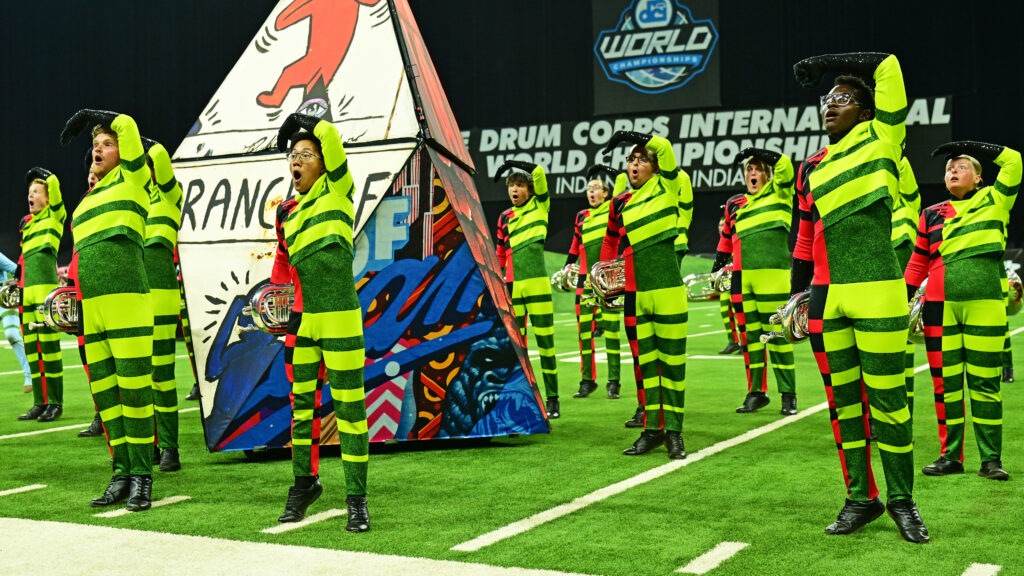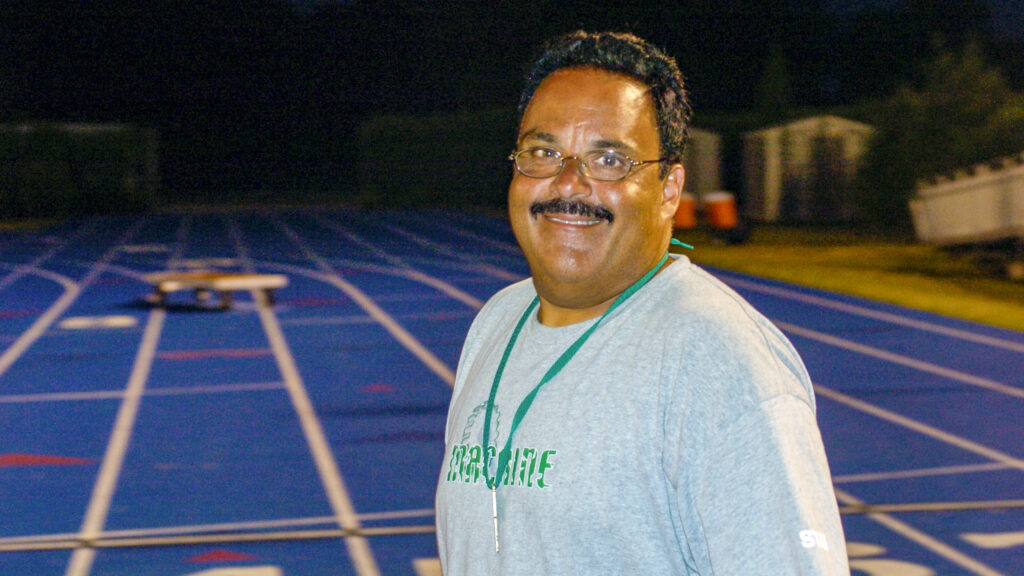“When people think of our country they think of tulips, windmills, wooden shoes, skates and a guy with his finger in the dyke. All very true historically seen. But tulips only bloom in spring, windmills are for professional use, wooden shoes are really only worn by farmers, skates are taken from the attic only when we are lucky enough that the temperatures drop so low that waters freeze over. And the guy with the finger in the dyke and saved the country from flooding — that is a true story.”–Hans KloppertDespite a decline in corps memberships in recent years, and the relatively recent disbanding of Drum Corps Holland, talented Dutch musicians are still participating in the drum corps activity, according to Hans Kloppert, tour coordinator of Jubal, a Dutch drum and bugle corps that will be visiting the United States later this summer. Jubal will perform in exhibition at several Drum Corps International shows during its three-week American tour, including on July 26 at the DCI Masters in Murfreesboro, Tenn., on July 27 at DCI Midwestern in Indianapolis and on Aug. 1 at the East Coast Classic in Lynn, Mass.Jubal has been in existence since 1911, and is based in Dordrecht, the oldest city in Holland.Kloppert says that three main corps are active in Holland today: Beatrix from Hilversum, Juliana from Middelburg and Excelsior from Goes. Drum corps in Holland used to be extremely popular, Kloppert said, but its popularity has waned somewhat in recent years. “Both Jubal and Beatrix were trendsetters for a lot of units that adopted the drum corps style and instrumentation. In the 1980s and 1990s the Dutch drum corps scene (consisted of more than 20) units on the field, both in Open Class, Class A and Cadet Class,” Kloppert said. He then added that, “the number of drum & bugle corps in Holland has decreased immensely. Unfortunately lots of corps folded or merged and eventually abandoned the activity or simply quit existence.”Jubal won five Drum Corps Holland national championships after joining the organization in 1982. In 1996, Jubal left Drum Corps Holland to concentrate on performing all over Europe rather than just in Holland.Dutch drum corps practice all through the year, practicing two nights per week. In the winter, a corps works on music, while in the summer, the corps works on its outdoor drill. “Most members don’t need to travel that far to rehearsal, so it’s very easy to keep the corps together the entire year. In the off-season sometimes concert performances are scheduled or parades (are marched),” Kloppert said.Dutch drum corps like Jubal are open to performers of all ages – there is no “age-out” year for members. Also unlike American corps, most Dutch corps members work or attend school so they do not devote their entire summer to a corps, although weekend rehearsals intensify the closer it gets to September. “Here members are enthusiastic in their activities for the corps. With most members having a either full-time job or being full-time students, it is sometimes to make a full 100 percent attendance at rehearsals and performances,” Kloppert said.Kloppert doesn’t think that American drum corps members are that different from Dutch drum corps members, except that, “the American activity (is) so much more intense – (demanding) a different mentality from its members. Drum corps in Europe still is a lot like a hobby compared to the professional level at which DCI corps operate,” Kloppert said.Dutch corps members are very familiar with the activities of Drum Corps International. Some members have marched with American corps, including the Madison Scouts, Santa Clara Vanguard, Colts, Southwind and Crossmen.”Many members of our corps are nuts about DCI. On longer bus rides we often watch DCI Championships videotapes,” Kloppert said, and added that the Dutch have followed and emulated American corps for quite some time. “Jubal has followed the American drum corps scene since we first bought G-tuned bugles back in 1961. In fact, our corps was the first ever corps outside the USA and Canada to play G-tuned bugles, and the first to add an extended field percussion,” Kloppert said.Dutch corps unveil their program each year on April 30 – the Queen of Holland’s birthday. It’s a national holiday. Unlike American corps, Dutch corps take a six-week holiday during the summer, consistent with many European countries’ holiday seasons. “There would be no possibility in fielding a decent size corps during the summer period,” Kloppert said.This year is already shaping up to be a good one for Jubal. The corps’ program, “Variations in Jazz,” features songs from Sammy Nestico, Gordon Goodwin and John Tesh. “The music is very accessible for all types of crowds,” Kloppert said.”We put together a complete new production for this season, and had the chance to already perform it for quite large crowds. So far we’ve already had three trips to France and one to Belgium apart from the many performances that we have had in our own country,” Kloppert said. Jubal will perform in Rastede, Germany, at the first Drum Corps Germany competition of 2002 and the International Ratsede Music Days, a competition featuring corps from Poland, Holland, Belgium and Denmark.Like some American corps, Jubal consists of several different musical entities. “We have a feeder corps, “Jong Jubal,” which has about 80 active members. Jong Jubal celebrates its 70th anniversary this year. Then there is JD’s Big Band – a 30-piece big band – which has a lot of former marching members,” Kloppert said.Since 1998, Jubal has sponsored “Music Kids, which is a free, 20-week music program for 7-year-olds. Music Kids is a preparation course for Jong Jubal.
- Marching Music's Major LeagueTM





